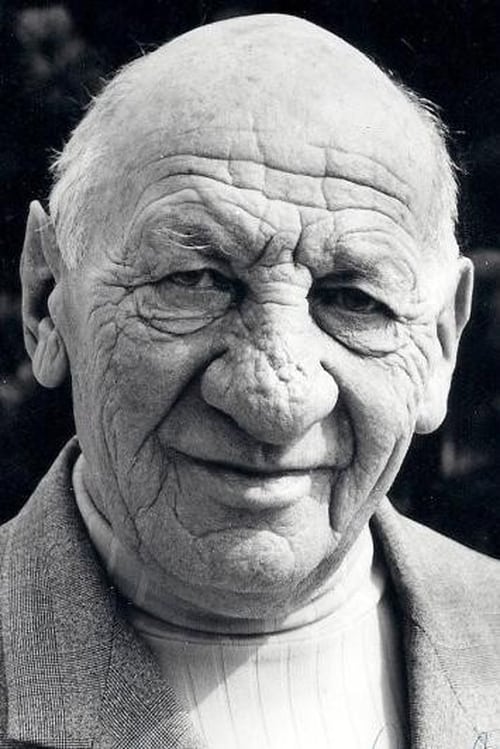Heinrich Gretler
Nascimento : 1897-10-01, Zürich, Switzerland
Morte : 1977-09-30
História
Heinrich Gretler (1897–1977) was a Swiss film and television actor, who also starred on stage at the Bernhard-Theater in Zurich.
Source: Article "Heinrich Gretler" from Wikipedia in English, licensed under CC-BY-SA 3.0.

Heiri Baer

Hoteldirektor

Spund

Ziehler

Hirt

Köhlervater

Alter Schäfer

Alcuin

Nachbar David

Kapitän Brinkhoff

Wiener

Hauptkommissar

Vater Kohlhiesel
Landlord Kohlhiesl has two twin daughters that nevertheless couldn't be more different: Liesel is beautiful, feminine, sophisticated, educated and in love with a fellow, Toni, from back home. The other daughter, Susi, is clumsy, masculine, never left home and wants nothing to do with men. Liesel would dearly love to marry Tony, but her father refuses to allow the wedding until her sister Susi has found a husband first...

Pfarrer

Mautner sr.

Der alte Krüty

Trautwein
Musical comedy about a marriage registrar.

Gustav Eidenbenz
A poor family with 6 kids that live in a ramshackle hut are suddenly offered a nice flat for cheap - with the landlord hoping they'll drive away their new neighbors whom he wants out of his building.

Tauchmann
"Le Dabe" retired many years ago and now he lives in the Tropics where he owns stables and horses. He is a very rich man. He was the king of all money counterfeiters. He is contacted from Paris to organize a new job. He says no. But when he finds out the the currency that should be counterfeited is the Dutch florin, he accepts immediately. He retired after having counterfeited 100 florin notes just before the Queen Wilhelmina retired them from circulation. He flies to Paris. But the gang is not to be trusted, at least not all of them.
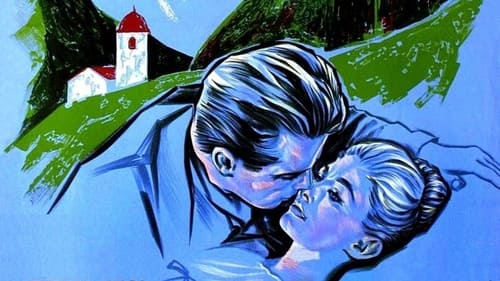
Amtmann Bonatsch

Wachtmeister Müller

Zyberlihoger-Joggi
The further trials of the wealthy Emmentaler farming family Jowäger and their neighbors, adapted from the second volume of the 19th century novel by Jeremias Gotthelf (pen-name of Albert Bitzius).

Moosgruber

Bischof

Zyberlihoger-Joggi
The trials of the wealthy Emmentaler farming family Jowäger, adapted from the 19th century novel of the same name by Jeremias Gotthelf (pen-name of Albert Bitzius), which was also published in two parts.

Richter

Feller Hansi

Gastwirt Rüder
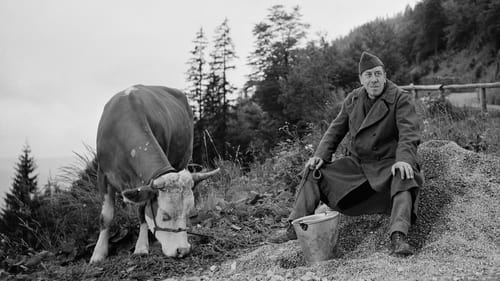
Bockmann
In 1942, a French prisonner of war in Germany decide to escape to France using a cow hold by a lunge as a decoy. He cross all Germany in this way.

Stadtrat Niggelmann

Vater von Felix und Gemeindepräsident
The farmers of a village decide to postpone the construction of a new school in profit of a concentration to cheese production. From a novel by Jeremias Gotthelf.

Pfarrer Polding

Chief Strobl
Michael Kirchner, nicknamed "The Black Lightning", is a passionate alpine skier. Now he must eliminate the tough opponent Herbert Tanner to be the representative of the national team.

Haas

Wachmeister Grimm
Der 10. Mai (The Tenth of May) was the date in 1940 that Hitler invaded the Low Countries: Belgium, Holland and Luxembourg. Neutral Switzerland, which hadn't experienced a war since the 14th century, hurriedly fortified its borders with battalions of inexperienced soldiers. The panic, confusion and isolated acts of courage which occurred on that fateful day are re-created in this Swiss docudrama. The story is "personalized" by concentrating on a fugitive German soldier (Heinz Reincke) who falls in love with the Swiss girl (Linda Geiser) who shelters him. Produced on a bare-minimum budget, Der 10. Mai is impressive more for its sincerity and raw energy than for its actual cinematic merits.
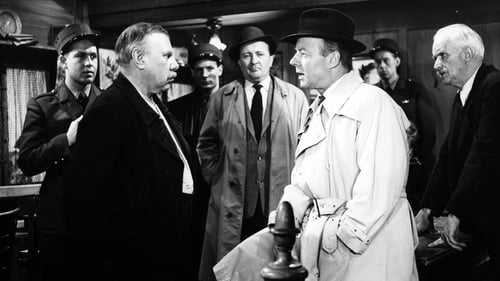
Polizeikommandant
The search for a child murderer drags a once-respected detective into an all-consuming obsession.

Bischof

Professor Guter

Landrat Zinner

Kaslatterer, Bürgermeister
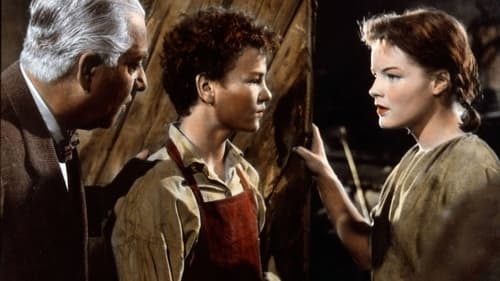
Mr.Wilde
London, in 1730. Charly, Jim and Ben work hard, with the brave Maud, in a cotton mill to earn a few shillings. They all dream of the wonderful island told by Daniel Defoe. The latter lives in a miserable room. He is disgraced and rejected by his son Tom, a scoundrel who blames his father for losing his position at the Court ...

Posthalter

Josef Reindorfer

Herr Kummer

Schwaiger

Heinrich Prugger, Sägewerksbesitzer

Köhler
When seminarian Martin Rufmann arrives in St. Eustachen, idyllically located in the Carinthian mountains, the local choral society is celebrating a joyous festival. Martin is the youngest son of the widowed head forester Thomas Rufmann. Martin's older brother Friedolin has inherited his father's love of hunting and is one of the best hunters in the area. He is also engaged to the pretty innkeeper's daughter Helene Schwarzaug. At the feast, Friedolin and his cronies drink heavily to the black liquor of the charcoal burner Krauthaas. Friedolin and the townspeople Günther have a loud argument in front of everyone. When Günther is found murdered a short time later, suspicion immediately falls on Friedolin. To save his brother, Martin accuses himself of the crime. The two brothers are arrested. The real culprit soon turns himself in, but in the meantime Thomas Rufmann has disappeared without a trace.

Gottlieb Peukert

Heinrich Krüger

Fischer-Bartl

Sepp Riedl, Gastwirt

Alp-Öhi
Heidi lives with Alp-Öhi n the Swiss Alps in the summer, where she helps Peter tend the goats. In winter, she stays in the village and attends school. One day, a letter arrives from Heidi's German friend, Klara Sesemann, announcing her visit. Klara indeed appears the next summer along with her grandmother and the prim governess Miss Rottenmeyer. Klara is quickly convinced to stay with Heidi, but Peter becomes resentful that Heidi now spends so little time with him...
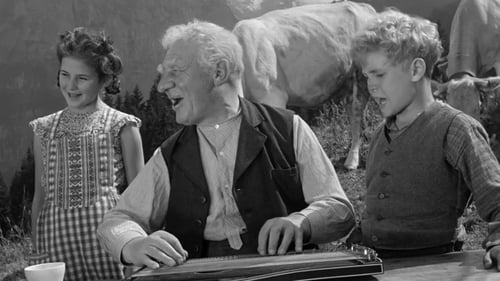
Onkel Abegg
At the age of three, little Wolfgang has lost his parents. Since then his uncle Eduard raises the boy. As a former concertmaster Eduard has recognized how gifted his nephew is and the boy learns the hard way. The 6-year-old must practice daily 6 hours at the piano and already impresses at famous music parties. When Eduard Fabricius breaks a leg after a concert in Lucerne and must go to the hospital, he can be persuaded by a pediatrician to grant some carefree vacation weeks in a manor for Wolfgang. The manor belongs to the young widow Elisabeth who soon grows very fond of the little boy. Wolfgang makes friends with 11-year-old Heidi and Jöggi, a boy his age who first saw a rival in him...
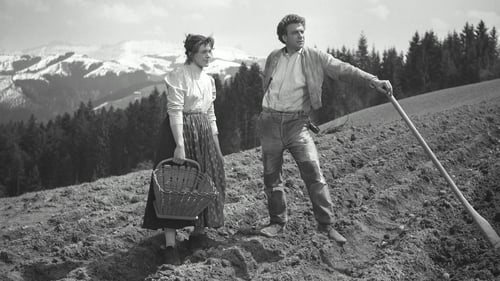
Johannes, Bodenbauer
The film traces Uli's progress from his humble peasant surroundings to the homes of the wealthy and prominent. The characterizations are convincing, and the comic interludes surprisingly subtle and believable for a Swiss film. The no-star cast doomed Uli Der Knecht from the start so far as American distribution was concerned. It was another matter in Switzerland, where the film was one of the year's top moneymakers. Uli der Knecht was based on a novel by Jeremias Gottbelf.

Herr Thuregg

Bürgermeister Percht

Pfarrer

Knüsli
Unemployed and homeless actors following the dream of finding the future in South America. The manager Osvaldo Curtis tricks the group of colorful and failed artists to apply for a special visa overseas.

Großvater Moosleitner

Pfarrer Randlmann

Bürgermeister Max Händel
A young man practices medicine without a licence.

Bürgermeister

Alp-Öhi / Alp-Ochi, Heidi's Grandfather
Heidi, a young orphan girl living with her aunt in Frankfurt, is forced to move to the Swiss Alps to live with her ornery grandfather. At first, he resents her presence, but, after a short while, Heidi manages to pierce his gruff exterior, and the two become close. She also befriends a young shepherd named Peter. After three years, Heidi's aunt arrives and demands Heidi's return to Frankfurt.
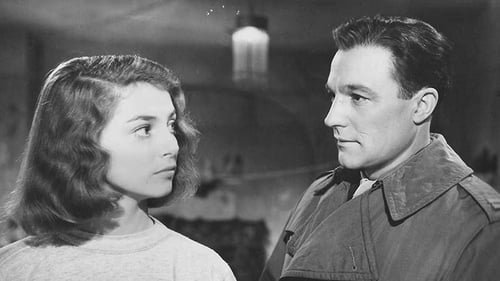
Herr Keigler
Jeff Elliot is an American GI investigating a black market gang in Munich.

Graf Fürstenberg
Directed by Harald Braun and told from the perspective of Bertha von Suttner, the first female to receive the Nobel Peace Prize, The Alfred Nobel Story - No Greater Love chronicles the life of scientist, inventor, and businessman Alfred Nobel. Nobel built a massive fortune throughout his life, and while much if it was amassed by his inventions--dynamite being perhaps the most notable--he was also revered for his discoveries within the fields of science and economics. Upon his death, Nobel decided that his fortune was simply too great to continue in the form of an inheritance or single charitable donation, opting instead to use the money as reward for the greatest contributors to physics, chemistry, medicine, literature, and, of course, peace.
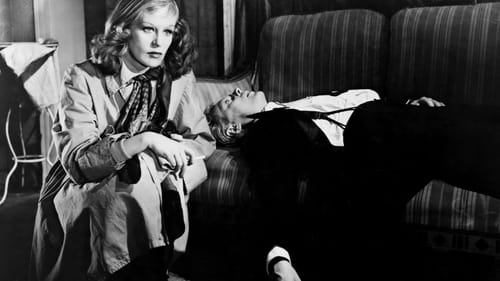
Spediteur Carl Falk
An aging truck driver finds smuggled money and becomes involved with a hijacking crowd.

The mayor
Re-education film by Wolfgang Becker.

Scharrer, Neuwirt

Lindoberer

Paul Hendrix
A doctor discovers a new medical cure with dangerous side effects, and takes the drug himself to test its limitations.

Christian Glucker

Vergeiner

Matthias Hochleithner

Gemeindepräsident
A sailor on leave meets a beautiful girl on the ski slopes of Switzerland.

Wachtmeister Studer
If any one man is responsible for the rejuvenation of the postwar Swiss film industry, that man was director Leopold Lindtberg. Matto Regiert (Madness Rules) was co-adapted for the screen by Lindtberg from a novel by Friedrich Glauser. Heinrich Gretler stars as Police Constable Studer, the hero of several of Glauser's most popular works. This time, Studer must solve the murder of the director of an insane asylum -- and it's not (surprise, surprise) the most likely suspect, manic-depressive patient Herbert Caplaun. For box-office purposes, Matto Regiert stresses a romantic subplot involving Caplaun and nurse Irma Wasem.
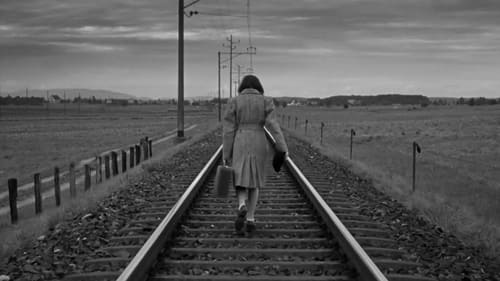
Director Rüegg
The titular Marie-Louise is a young French lass who is evacuated to Switzerland when her country is overrun by the Nazis. Suffering a nervous breakdown, she is given comfort and shelter by a wealthy family. Unfortunately, living in the lap of luxury makes Marie-Louise hesitant to return home to her mother and war torn home. Eventually the girl comes to her senses, but it isn't easy.

Arnold Murer
A man in his fifties returns from America to his native village. Everyone knows that in the New World he served a lengthy prison sentence for manslaughter. He retreats to an isolated quarry in the woods he inherited. There he lives like a hermit, gruffly disencouraging anyone to come near the place.

Friedrich Odermatt
Gilberte Montavon was a legend in her own lifetime. As a young woman, she was confidante to hundreds of thousands of Swiss-German speaking soldiers during the First World War, and remembered most of their names. She was still a teenager when the war began, and was immortalised by a song written during the war years by the Swiss-German bard and lute player, Hans Inn der Gand.
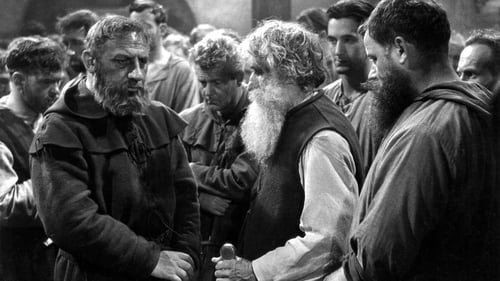
Werner Stauffacher
Switzerland in the 13th century: Shot in the middle of World War II, this classic film returns to the origins of Switzerland and turns about the problem of the small country against a big power: Resist or obey?
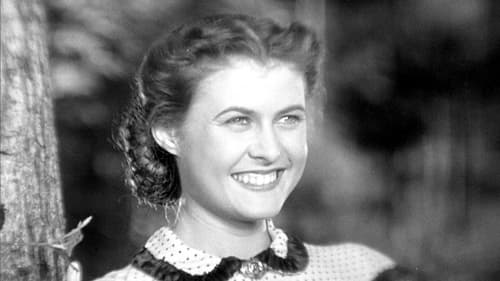
Schulpfleger
While on a longer business trip, a wannabe poet urges his beautiful but more simple wife to answer his overly swollen love letters. With no idea how to respond she forwards the letters to a new young school teacher to use his answers instead...

Wachtmeister Jakob Studer
A policeman is not convinced that the prime suspect in a murder case is realty guilty and so decides to reinvestigate the case, despite the lack of co-operation from locals.

Handwerker

Heiri Mettler
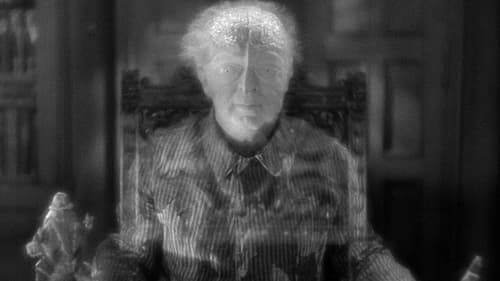
Inspetor de polícia de Berlim investiga um caso em que todas as pistas levam a um homem que está internado num hospital para doentes mentais há muitos anos, o Dr. Mabuse.

Sanitäter
A dashing marquis bends from his horse when he discovers a lost garter in the woods and falls. During his delirium he is serenaded by a little hairdresser. She is the person who lost the garter to begin with and has only come to get it back having borrowed it from her employer--the empress of France. The marquis mistakenly thinks he was nursed by the empress, herself, and decides to woo her.

Judge
By pure chance, Jessie and his four jazz musicians are hired to play at the cabaret theatre “Trocadero”. Unfortunately, she knows nothing about music and it doesn’t help that all four musicians are in love with her. Jessie doesn’t reciprocate their feelings, because she has a thing for Martin. Unfortunately, Martin believes that Jessie stole his car … and so, right before the premiere at the cabaret, she ends up in jail.
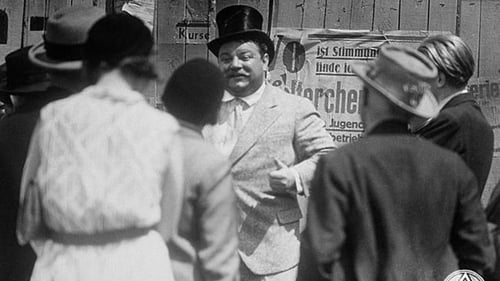
Kofferdieb
Franz Biberkopf has served four years in prison. His return to normal life is not successful.

Kurt Brann, sein Untermieter
When a prostitute is murdered in a cheap Berlin boarding house, an investigating judge suspects that the killer is her boyfriend, unaware that his own son and daughter are also mixed up in the case.

Grenzjäger
The story of the rise to power of King Frederick II (aka Frederick the Great) of Prussia and his military campaigns to make Prussia a major power in Europe.

Pelle
13 German soldiers have to fight off a French regiment.
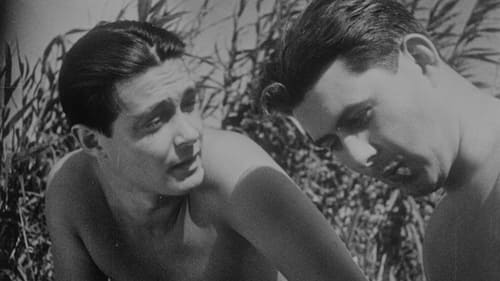
Heinrich
A semi-documentary experimental 1930 German silent film created by amateurs with a small budget. With authentic scenes of the metropolis city of Berlin, it's the first film from the later famous screenwriters/directors Billy Wilder and Fred Zinnemann.

Seiler, Hotelwirt
Struggle for the Matterhorn (German: Der Kampf ums Matterhorn) is a 1928 German-Swiss silent drama film co-directed by Mario Bonnard and Nunzio Malasomma and starring Luis Trenker, Marcella Albani, and Alexandra Schmitt. The film is part of the popular cycle of mountain films of the 1920s and 1930s. Art direction was by Heinrich Richter. Based on a novel by Carl Haensel, the film depicts the battle between British and Italian climbers to be the first to climb the Matterhorn. Trenker later remade the film as The Challenge in 1938.
